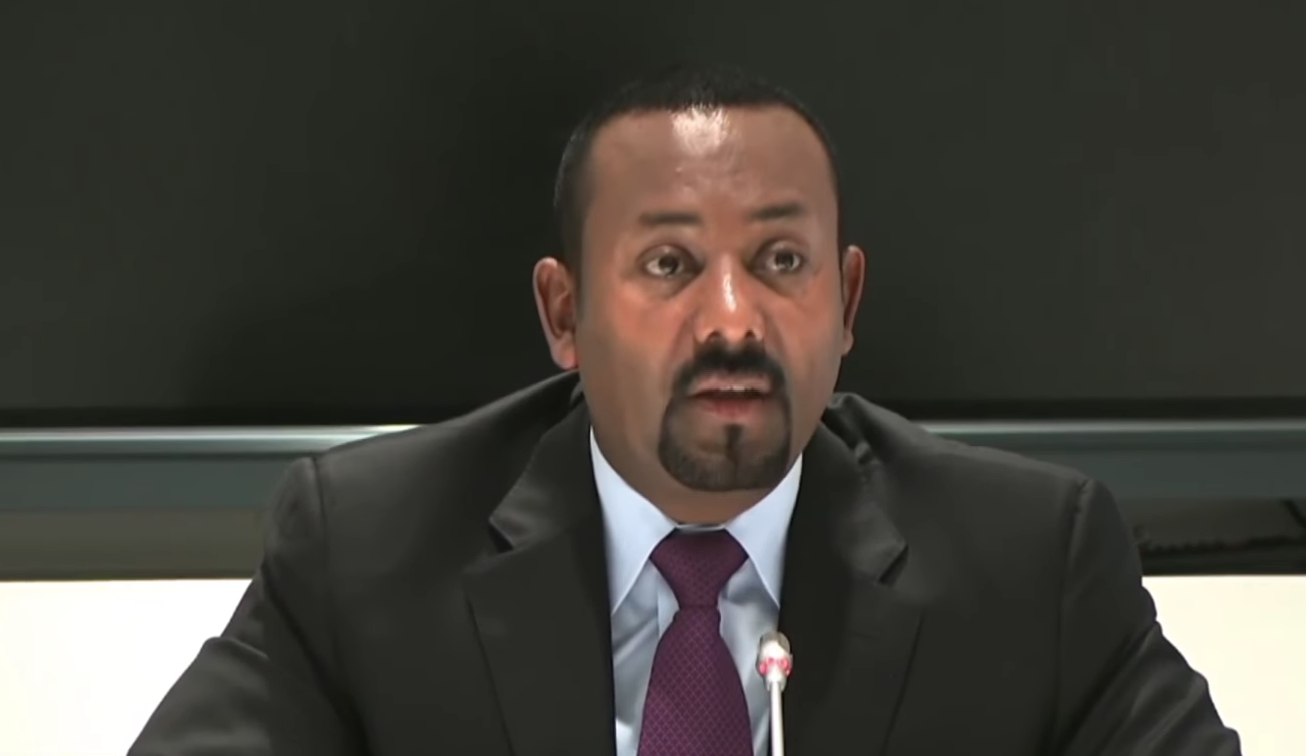
Commentaries | Feb 12,2022
Oct 10 , 2020
By Christian Tesfaye
The doom and gloom is becoming unbearable but there seems to be the attitude in Ethiopia that, however bad it is going to get, a last-minute turn around will deliver us out of the darkness.
Nothing better exemplifies this attitude than the relationship between the Tigray regional and federal governments. The former recently announced that it will no longer recognise the legitimacy of members of parliament. The House of Federation of the latter shortly after stated that it will no longer have formal relationships with the legislative and executive bodies of the regional government.
Supporters on each side of the political aisle are going to great lengths to delegitimise the other and express the sanctity of their positions. Blame is apportioned as far away from oneself as possible, and a sense of bravado seems to colour every single one of their positions.
Just as unfortunate is how both sides believe they can win the supporters of the other side to their team.
There does not seem to be any way of alleviating tensions at the moment. It seems to be a case of an unmovable object meeting an unstoppable force. We know how this could climax. Conflict is not unlikely. Peace and stability are not inevitable. We have seen around the world how, once the first trigger has been pulled, it becomes a violent and adversarial relationship that lasts years and costs too many lives.
How can such a scary predicament be avoided when both sides believe they can win and that they hold the higher moral ground? Is it just a matter of time before this engagement is handed over to the generals from the politicians?
Perhaps the Ethio-Eritrean conflict, which admittedly occurred under different circumstances, can serve as a lesson. It occurred between 1998 and 2000, half a decade after Eritrea formally broke away from Ethiopia.
Arguably, the roots of the war are partly economic and partly a function of political dysfunctions in both countries that allowed the war to occur. In the popular mind, it is also a disagreement over borders.
But how long-simmering political tensions manifest themselves through a conflict over areas of land that do not seem strategic can be understood from the Ethio-Eritrean conflict. Badme, a small border town, was simply an excuse to take matters to their military climax and stumble into a war that lasted two years.
Badme was used as an excuse to prove a point, advance political agendas by the respective ruling parties of the two countries and demonstrate superiority.
The conflict led to the loss of tens of thousands of lives, expenditure of resources in arms that could have been used for economic development, and almost two decades of tension between Ethiopia and Eritrea.
To this day, I have not read or heard any argument that demonstrates that the war and its consequences justified the loss of all those lives.
Indeed, what was the message to the loved ones of those that lost their lives during the 1998-2000 conflict when Isayas Afewerki, president of Eritrea, was greeted in Addis Abeba with such fanfare in 2018?
It was a senseless war, and it should weigh heavily on the conscience of those that were leaders at the time.
This conflict, and its consequences, should also inform how our leaders today are planning and calculating their chances in the current political impasse. They should be aware that the clock is ticking and all that large scale armed conflict requires is someone pulling the trigger at the wrong time at the wrong place. It should not have been the case, but the chances of stumbling into conflict are too high.
Are the current political problems that we have unassailable?
Not even close. We are not trying to find the Theory of Everything. We are not even trying to find a cure for cancer. We are just trying to get groups of elites with powerful political interests to sit for a discussion, and give in on some of their demands.
Politics is wholly a matter of human behaviour and actions. Sure there are some bad apples here and there that could cause major problems, but it has always been in the hands of the majority to realise stability.
If what they say is true, and if every country has a majority that is largely silent, decent, believes in diversity and values peace and stability, it is time to speak out.
PUBLISHED ON
Oct 10,2020 [ VOL
21 , NO
1067]


Commentaries | Feb 12,2022

Sunday with Eden | Apr 10,2021

Advertorials | Jul 11,2019

Commentaries | Jun 13,2020

Fortune News | Mar 16,2020

Radar | Oct 01,2022

Editorial | Jan 13,2024

Commentaries | Mar 20,2021

Viewpoints | Apr 10,2021

Radar | Mar 20,2021

Photo Gallery | 176459 Views | May 06,2019

Photo Gallery | 166673 Views | Apr 26,2019

Photo Gallery | 157191 Views | Oct 06,2021

My Opinion | 136911 Views | Aug 14,2021

Dec 22 , 2024 . By TIZITA SHEWAFERAW
Charged with transforming colossal state-owned enterprises into modern and competitiv...

Aug 18 , 2024 . By AKSAH ITALO
Although predictable Yonas Zerihun's job in the ride-hailing service is not immune to...

Jul 28 , 2024 . By TIZITA SHEWAFERAW
Unhabitual, perhaps too many, Samuel Gebreyohannes, 38, used to occasionally enjoy a couple of beers at breakfast. However, he recently swit...

Jul 13 , 2024 . By AKSAH ITALO
Investors who rely on tractors, trucks, and field vehicles for commuting, transporting commodities, and f...

Oct 18 , 2025
The political establishment, notably the ruling party and its top brass, has become p...

Oct 11 , 2025
Ladislas Farago, a roving Associated Press (AP) correspondent, arrived in Ethiopia in...

Oct 4 , 2025
Eyob Tekalegn (PhD) had been in the Governor's chair for only weeks when, on Septembe...

Sep 27 , 2025
Four years into an experiment with “shock therapy” in education, the national moo...

Oct 18 , 2025 . By NAHOM AYELE
In a sweeping reform that upends nearly a decade of uniform health insurance contribu...

A bill that could transform the nutritional state sits in a limbo, even as the countr...

Oct 18 , 2025 . By SURAFEL MULUGETA
A long-planned directive to curb carbon emissions from fossil-fuel-powered vehicles h...

Oct 18 , 2025 . By BEZAWIT HULUAGER
Transaction advisors working with companies that hold over a quarter of a billion Bir...